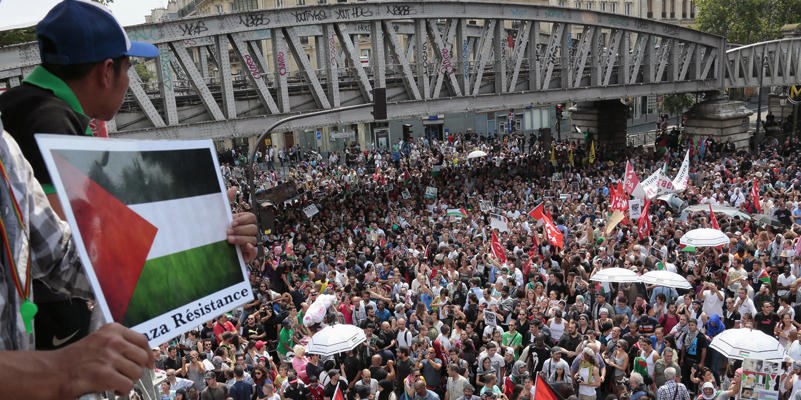“All eyes on Rafah”. All eyes turn to Rafah. This image created with artificial intelligence by a Malaysian photographer has been making the rounds on social networks since mid-May. This message of support to the inhabitants of Gaza who were victims of the bombings following the Hamas attacks on October 7 in Israel now illustrates the involvement, even distant, of the “international community” in a conflict which has lasted for more than 7 decades and which is experiencing a unprecedented resurgence of violence.
But what can citizens of the rest of the world really do? Beyond possible participation in humanitarian aid, the question of recognition of a Palestinian state is once again becoming an international issue following a decision to this effect (effective since May 28) by three European states: Spain, Ireland and Norway. They join 7 other European countries, including Sweden since 2014, which officially admit the existence of Palestine as a state.
In France, voices are being raised for Paris to take the same path, notably that of the former Minister of Defense, Jean-Yves Le Drian.
“There is no taboo for France, I am ready to recognize a Palestinian state (…) but I consider that this recognition must come at a useful time. I will not make an acknowledgment of emotion,” declared Emmanuel Macron during a press conference in Germany on May 28. The Prime Minister gave a similar speech to parliamentarians, judging that if this recognition was not “taboo”, it should prove “useful to the peace process”.
Concretely, this can result in the establishment of diplomatic relations, or even the negotiation or ratification of a treaty, a presidential prerogative, as provided for in article 53 of the Constitution.
In the past, France, then led by Charles de Gaulle, officially recognized the People’s Republic of China in 1964, 14 years before the United States did the same.
In terms of international law, reference is often made to the Montevideo Convention of 1933 which defines a State as a legal “person” any given population united in a specific territory and governed by an entity capable of entering into relations with other states. “The political existence of the State is independent of its recognition by other States”, it is written in Article 3. In other words, if a State is not recognized by other States, this does not prevent its political existence. Several cases of this type still exist, including the Palestinian state, but also Israel, which is not recognized as a state by 21 countries in the world, nor Taiwan, which does not have a seat in the UN.
The United Nations is not the “guarantor” of the existence of a State, but can accept new members within it. Its General Assembly currently has 193 member states, with the latest entrant, South Sudan, having been officially admitted in 2011.
On May 10, 2024, the UN General Assembly meeting in New York reiterated to the Security Council the request for admission of Palestine as a full member. France, one of the 5 members of the UN Security Council, voted in favor of this request, but the United States still vetoes it.
The Charter of the United Nations provides that, to admit a new member, the latter must be one of the “peaceful States which accept the obligations of the present Charter and, in the judgment of the Organization, are able and willing to fulfill them ”.
To be able to join the UN as a member, the state in question must make a request to the secretary general. This request must obtain 9 favorable votes from the members of the Security Council, and no veto from the 5 permanent members (China, France, Russia, the United States and the United Kingdom). Membership is then submitted to the vote of the General Assembly where a two-thirds majority must be met.
For the moment, the “State of Palestine” is only considered a “non-member observer state”. He is the only one in this situation with the Holy See. This gives them the right to officially participate in organizational discussions, without having the right to vote.
The question of full recognition of a Palestinian state by all other world powers, starting with mutual recognition, constitutes a particularly thorny point in the Israeli-Palestinian conflict. Many world powers, including the United Kingdom for example, are arguing in favor of the “two-state solution”, which would amount to recognizing the joint existence of two states separated by borders originally defined in 1967 but which have continually been disputed .
